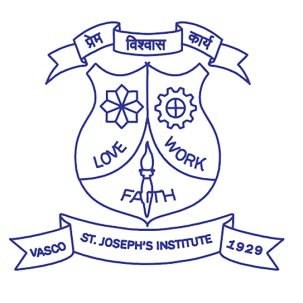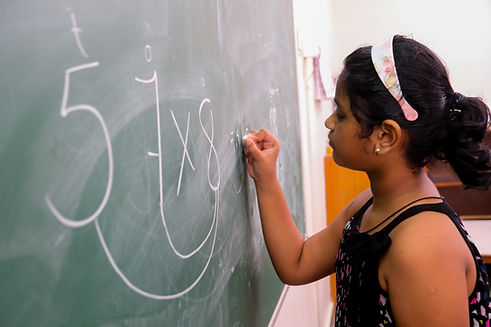

Notices

EYP 1-3 Family Talent Show on 31st January 2026
Night-In for PYP 1 to 3 on
15th and 16th January 2026
Road safety awareness program on
14th January 2026
PSPE Day on
24th January 2026


School Philosophy
At St. Joseph’s, we are committed to nurturing self-assured, empathetic students who embrace diversity and adapt to change. Our philosophy centers on providing a stimulating learning environment that promotes cognitive, socio-emotional, and physical growth for every individual.
Our Vision
Our vision is to nurture a school where learning helps to enhance the physical, mental, emotional, social and cognitive development of children. Education must build a questioning mind. The school’s activities should enable the children to imbibe qualities such as leadership and self-discipline through intellectual and physical growth.


Learning, Friendship and Fun for Everyone.

For Children
At St. Joseph’s Institute, we work to create a space that is stimulating, respectful, and secure; where the children under our care can learn with the joy and support required for true intellectual growth and psychological well being.

Inclusive Education
At St. Joseph’s Institute, our Inclusive Education Program fosters a welcoming environment for all students. We provide personalized learning, adaptive teaching, and collaborative activities, ensuring every child thrives while promoting diversity, understanding, and a strong sense of belonging.

Gardening Project
At St. Joseph’s Institute, our Gardening Project connects students with nature, teaching them sustainable practices through hands-on experiences in planting, nurturing, and harvesting fruits, vegetables, and flowers, while fostering teamwork and environmental appreciation, along with integration across subjects.


Congratulations to Sanvi Arjun Desai of Class 4 for securing 1st place in the Taluka Level Drawing Competition (Class 1–4 category)

Heartiest congratulations to Priti Shetye on a well-deserved promotion! Best wishes from Chowgule Education Society.

Our chess champion Drisha Dipak Ghonge from class 4, actively participates and wins taluka level tournaments.

Asiba Afsa Sayed, from class 3, for 2nd open Goa state Karate Championship, won bronze and silver medal
Integration- Activity based learning
-
Our Integration and Activity-Based Learning Program combines various subjects and real-world experiences to create a dynamic and exciting educational environment for our students.
-
Through interactive activities, collaborative projects, and experiential learning, we encourage students to explore, question, and discover. This approach not only makes learning fun but also helps students develop critical thinking, teamwork, and problem-solving skills.


